Nationalism, in various shapes and forms, is now increasingly dominating the political landscape in Europe
The rapidly changing events in Ukraine and Crimea have shown how political stability should never be taken for granted.
Unrest is bubbling away not only in the East but also across the wider European continent as the sense of shared direction starts to fade and borders rise up again. Suddenly, the world is looking inward once more, attitudes are hardening and extremism thriving.
Historical anomalies are also being addressed, hence Russia’s reintegration of Crimea. To some an opportunistic land grab – to others, not least the overwhelming majority of Russians living there – it is merely correcting a mistake of the past after Nikita Khrushchev ‘gifted’ the peninsula to the Ukraine in 1954.
National identity forms an intrinsic part of what is currently developing in many parts of Europe.
From the rise of UKIP to the revolution in Ukraine, from Greece’s neo-Nazi Golden Dawn to the separatists in Catalonia, the pigments of nationalism in their various shades and textures are increasingly dominating the palate of political debate.
“The key driver at the moment is that more support for nationalism, primarily in the form of support for nationalist parties, but also in terms of more radical movements, is a response to worsening socio-economic conditions coupled with the failure of elites to deal with the current situation or prevent the crisis in the first place,” says Dr Florian Otto, head of Europe and Central Asia at Maplecroft. “In Eastern Europe, it is also about the failure to deliver development, coupled with issues of institutional weakness and corruption”.
Stuart Poole-Robb, chief executive of KCS Strategic Intelligence and Corporate Security, agrees: “We’ve come to a point where we are just coming out of a really nasty recession that has affected people’s attitudes commercially and politically, and that as a consequence you’ve got a lot of unrest and a lot of minority groups in a strong position because of this weakness.
“In many ways the rise of nationalism in Europe is an expression of a broader and deeper instability across the world.”
The change can also be understood as a reaction to globalisation and the impotence felt by populations who increasingly believe that remote, supranational decision-making is having too great an effect on their daily lives.
“The eurozone crisis has reinforced this,” says Otto. “There is a sense that decisions are made in Brussels, Paris or Berlin and imposed on other states.”
This perception is being used by politicians on the left and right, safe in the knowledge that the public and the media will pick up these themes.
“Thanks to modern technology, there’s a lot of collaboration between nationalist groups across borders and we are seeing a domino effect,” says David Lea, senior Europe analyst at Control Risks.
“For example, with the ‘angry nationalists’, their focus in the late 1990s and early 2000s was often on Islam and immigration, whereas, in recent years, this seems to be resonating less well than it was when terrorist attacks were to the fore, and they have changed focus to the EU, intra-European immigration and its effects on daily life. They are looking around them and seeing what works elsewhere.”
Exploiting perceptions
In addition, because nationalism flowers on deep roots, perceptions of history are another accelerant to the rise of populist parties across Europe.
“Where there is a sense of ‘past injustice’ this can be seized on and exploited,” says Otto.
“An example would be Ukraine and Russia. In the west of the country, there is a widespread sense that the country was repressed by first Imperial Russia and then Soviet Russia; while in the east, there is a sense of belonging to Russia and being removed from Russia.
“In the Balkans, with the centenary of the First World War coming up, [history] is a big deal, especially in Serbia. In all the countries of the former Yugoslavia, nationalism is linked strongly to a sense of past injustice. More recently, the civil war has added further friction. You have a combination of legacies being used as a political tool.”
Faced with this situation, it becomes ever more important
for businesses to understand their operating environment and prepare, not only for social and economic unrest, but the risk posed by populist political agendas and an anti-multinational backlash.
“If an organisation has the commitment, expertise and financial wherewithal to operate overseas, then it should,” says Poole-Robb.
“But it should choose its markets with care. The problem is that even companies that we would regard as major players simply don’t have these things in place. I call it commercial malaise: a mixture of arrogance, ignorance and naivety. All of these major companies suffer from it to some degree; they all think that they know better.”
Avoiding complacency by having the right intelligence is becoming critical.
For example, country profiles are becoming more complex as regional issues become more and more important.
“It is no longer enough to do your research at a country level, you need to look deeper and understand more fully the detail of what is going on,” explains Otto.
Stuart Poole-Robb says: “People don’t know enough about the countries with which they are involved. There are plenty of things wrong within our own region before we even start going to North Africa or the Middle East.”
Looking out at the broader European context is also important. “There is much greater difference now within the EU,” says Otto. “Although I believe companies have always
realised that there is a difference between investing in Germany and Romania… what is new, is that you can no longer rely on the fact that newer members will continue along their road to greater convergence.
“If you think about the EU, its appeal is that it offers stability and adherence to a certain set of legal and democratic ideals. If we look closely, there might be a change. Especially when we talk about eastern and southern Europe and businesses need to seek guidance before they go there.”
The question should be asked as to whether there is an independent, functioning judiciary that can deal with issues without political interference – and perhaps more importantly – respond independently to political interference.
“Although though there are trends, when it comes to your actual operations you have to look at every investment on a case-by-case basis,” says Lea. “It’s dangerous to draw too many parallels.”
It is also important for companies to be aware that they, as foreign investors, could be targeted by campaigns or scapegoated in certain situations.
“You need to be thinking about how you can influence public
perception,” says Otto. “If you can make a strong case for the benefits you bring to a country, you can expose politicians when they start to go for easy answers.
“Make sure you don’t confirm prejudices that you are exploiting regulatory loopholes or otherwise taking advantage.”
There is the potential for significant change in the months and years ahead – and this is not restricted to countries usually considered the more volatile.
In September, people in Scotland will vote in a referendum to determine whether the country will remain part of the UK. The results will be watched closely across Europe, particularly in Catalonia, which wants to gain independence from Spain.
Meanwhile, British prime minister David Cameron, should he remain in power after the country’s general election next year and gain a majority, will oversee a vote that will allow the public to decide if the UK remains in the EU. Although that proposed referendum is another three years away, it has already
created uncertainty.
Instability here to stay
The risks presented by these complex operating conditions look set to become the new normal for doing business in Europe.
“Although nationalist movements rise and fall – they always have – and at the moment we are in a peak of activity, I believe, in the future, the troughs are going to be a lot less shallow,” says Lea. “We are going to have to get used to their presence on the European stage, even if it fades.”
The largest factor in influencing how the risk profile develops will undoubtedly be the economy, which, like everything else, remains unstable and uncertain.
“If we understand support for nationalist parties as a response in part to economic problems and as a way of expressing dissatisfaction with existing political elites, then there is the possibility that if these sentiments retreat, so will support for nationalism,” says Otto.
But who now expects a unified European recovery anytime soon? Moreover, until that happens, everyone needs to get used to a world where having the same phone and wearing the same trainers do not mean that we are all friends together.
Hungary
In recent years, Hungary has demonstrated the effect populist national politics can have on investor confidence. When the new government came to power
four years ago, it embarked on an important regulatory and legislative overhaul.
“It passed hundreds of laws,” says Florian Otto, head of Europe and Central Asia at Maplecroft. “More importantly, it changed the constitution to strengthen the power of the executive over the judiciary.
“It has also made attempts to target sectors where foreign businesses dominate. It has high taxes on businesses, particularly on the financial and utility sector, which is dominated by foreign firms – and this has been hugely popular”.
Whether these moves are merely tools to win the next election or a major shift in attitude, remains to be seen.
Ukraine and the EU
“Vladimir Putin doesn’t miss opportunities,” says Stuart Poole-Robb, chief executive of KCS Strategic Intelligence and Corporate Security.
“He has a lot of power through the oil and gas, and a lot of clout through his political structure; he has also wanted to close the back door to NATO for some time. He wants to close the back door to the EU as well.”
The revolution in the Ukraine is beginning to look like another Great Game and the country is feeling the pressure as competing spheres of influence – Russia, NATO, the EU, the US – enact their strategies. But while the West is so-far looking weak, perhaps the crisis may yet galvanise some troubled institutions.
“A resurgent Russia might help NATO explain why the alliance exists 25 years after the fall of the Berlin Wall,” says Dr Florian Otto, head of Europe and Central Asia at Maplecroft. “It may also help focus US attention back on Europe, and help the EU develop a single position on foreign policy.
“The situation in Crimea might reinforce the view that Europeans are stronger together.”





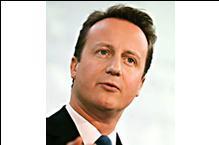
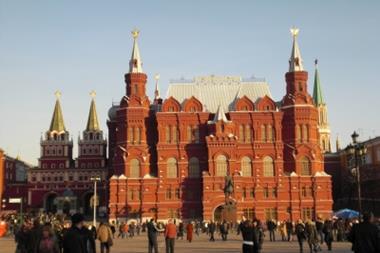

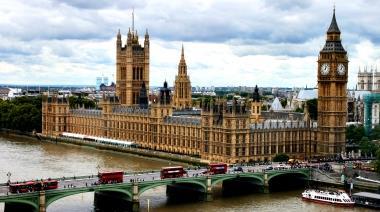
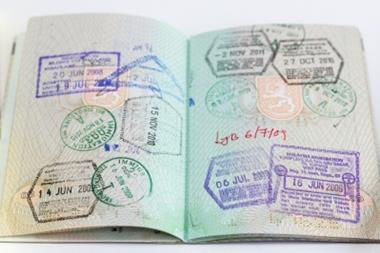
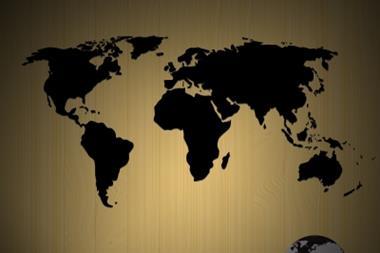
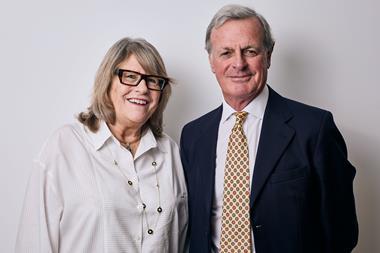
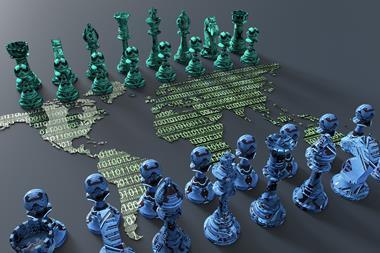



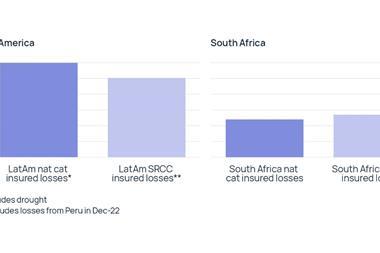



No comments yet